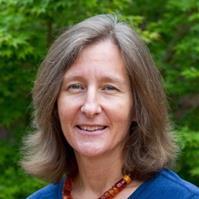Blog
An Unplanned Journey into Treating Addiction
When Anna Lembke, MD, FASAM, the winner of this year’s Hazelden Betty Ford Humanitarian Award, finished medical school, the last thing she planned to do was treat addiction.
 “Despite years of medical training, I didn’t know the first thing about how to screen or intervene for substance use problems,” said Dr. Lembke, an SA国际传媒member since 2011. “When one of my patients almost died because of my ignorance, I realized my not-knowing was not neutral, it was actually a harm.”
“Despite years of medical training, I didn’t know the first thing about how to screen or intervene for substance use problems,” said Dr. Lembke, an SA国际传媒member since 2011. “When one of my patients almost died because of my ignorance, I realized my not-knowing was not neutral, it was actually a harm.”
The more she examined the field of addiction medicine, Dr. Lembke was drawn to the culture of humility among physicians in recovery, many of whom she learned had dedicated their careers to helping others through addiction. She also appreciated the spiritual aspects of addiction treatment that she often witnessed.
“Addiction medicine is one of the few sub-specialties where ‘God’ isn’t a four-letter word,” said Lembke, now a psychiatry and behavioral sciences professor at Stanford University School of Medicine and chief of Stanford’s Addiction Medicine Clinic.
In 2016, the year the number of opioid deaths first crossed 42,000 people, Dr. Lembke published her first book, Drug Dealer, MD: How Doctors Were Duped, Patients Got Hooked, and Why It’s So Hard to Stop (2016, Johns Hopkins University Press). The book helped educate everyone from policymakers to the general public on the causes of the opioid crisis and possible solutions. It also helped Dr. Lembke receive the humanitarian award.
“I’m honored to receive this award,” she said. “Hazelden Betty Ford is the best that addiction treatment has to offer, and to be recognized by this esteemed institution is really special.”
In 2020, Dr. Lembke received ASAM’s Annual Directors Training Award, which honors individuals who have demonstrated outstanding training in the evaluation, treatment, research and teaching of SUDs.
That same year, she also appeared in the popular Netflix documentary The Social Dilemma, which provided a sobering look at social media’s influence on our lives. Her forthcoming book, Dopamine Nation: Finding Balance in the Age of Indulgence (2021, Dutton Penguin Random House), will be released in August. It will explore how to moderate compulsive overconsumption, including that of digital products, during a time when “feeling good” is increasingly considered “the highest good.”
Dr. Lembke said the need for an increased number of physicians specializing in addiction medicine great, as is the need for a renewed general focus on addiction in medicine.
“The problem of overprescribing opioids, benzodiazepines, stimulants and other addictive psychotropics is an ongoing problem,” she said. “Although opioid prescribing has gone down, opioid deaths overall are still rising, as are deaths involving sedatives and stimulants. Process addictions are also on the rise, including addictions to drugs that didn’t exist before, like video games and social media. Prevention needs to be a major focus, to prevent the disease before it occurs.”
The coronavirus pandemic, Dr. Lembke said, has helped create a shift toward prioritizing mental health and addiction training. It also has created new opportunities in the treatment of addiction. For example, telehealth has increased access and made appointments easier.
“We’re going to have to experiment with the best ways to translate mental health treatment to Zoom,” she said. “I’m pretty sure that mental health patients and providers alike will remain on telehealth platforms long after COVID is gone.”
For medical students who are not sure which sub-specialty to pursue, Dr. Lembke said she’s confident those who explore addiction medicine will find it to be “useful and rewarding work” that’s “also fun.” Like she did years ago, they might just need to look at it from a different perspective to see it in a new light.
“Patients get better and they’re delightful people,” she said of addiction medicine. “I’ve probably learned more from my patients in recovery than I’ve taught them in return.”
Interested in Addiction Medicine Certification? Click here>>>

